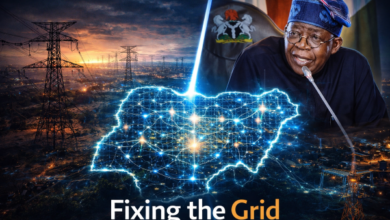
In a dramatic courtroom twist on Monday, Nnamdi Kanu, the embattled leader of the proscribed Indigenous People of Biafra (IPOB), stunned observers when he abandoned his earlier plan to call 23 witnesses — declaring instead that he has no case to answer in his ongoing terrorism trial.
Appearing before Justice James Omotosho of the Federal High Court, Abuja, Kanu told the court he had personally reviewed the entire case file and concluded that the charges against him were invalid and lacked legal substance.
“I have gone through the case file. There is no valid charge against me. This entire trial is unlawful,” Kanu told the court with striking confidence.
A Sudden U-Turn in a High-Profile Trial
Just days earlier, on October 21, Kanu had notified the court of his intention to call 23 witnesses and even sought witness summons to support his defence.
However, when proceedings resumed on Monday, the IPOB leader — dressed in his trademark white attire — made a sharp reversal, insisting that the prosecution had failed to establish any case against him.
This unexpected move adds yet another layer of complexity to a trial that has spanned years, drawing global attention and fueling political and ethnic debate across Nigeria’s Southeast.
Judge Cautions Kanu on Legal Implications
Responding to the development, Justice Omotosho advised Kanu to seek expert legal guidance, warning that the decision to forgo defence could carry serious legal consequences.
“You may wish to consult experts in criminal law on the implications of the position you’ve taken,” the judge cautioned.
The court then directed Kanu to submit a written address formally stating his decision and serve it on the prosecution for review.
Justice Omotosho adjourned the case to November 4, 5, and 6 for the adoption of final written addresses — either to determine whether the evidence presented so far establishes a case against the IPOB leader, or if he should indeed be discharged.
“No Valid Charge Against Me” — Kanu’s Bold Stand
Kanu’s courtroom declaration was both defiant and symbolic.
After years of detention, multiple legal battles, and intense political pressure, his latest stance signals a belief that the federal prosecution has failed to prove its case under the Terrorism Prevention Act.
According to legal experts, Kanu’s argument that there is “no valid charge” may hinge on claims of procedural irregularities, jurisdictional errors, and alleged violations of his fundamental rights.
His legal team has long argued that his abduction from Kenya in 2021 and subsequent extraordinary rendition to Nigeria were unconstitutional — a point that could feature prominently in his final defence submission.
Trial at a Crossroads
The case, which has captured national headlines, remains one of Nigeria’s most politically sensitive trials.
Observers say Kanu’s “no case to answer” stance could either accelerate his acquittal or strengthen the prosecution’s resolve to push for conviction based on the evidence already presented.
The coming weeks, analysts say, could be decisive — not just for Kanu’s fate, but for Nigeria’s broader justice system and federal approach to separatist movements.
“This is a turning point,” a senior legal analyst told BRANDECONOMY.
“If the court agrees that there’s no case to answer, it could reshape how politically sensitive prosecutions are handled going forward.”
BRANDECONOMY INSIGHT: The Stakes Behind the Drama
Kanu’s latest courtroom manoeuvre in the Nnamdi Kanu trial underscores a critical moment in Nigeria’s legal and political evolution — where rule of law, national unity, and judicial independence intersect under intense public scrutiny.
For investors, human rights advocates, and governance watchers, the outcome will be seen as a litmus test for Nigeria’s judicial integrity — especially in an era where the nation seeks to project stability and confidence to the world.
The trial’s conclusion could either reinforce Nigeria’s commitment to due process or deepen long-standing regional distrust in the justice system.
Either way, the next court sitting in November promises to be explosive, consequential, and closely watched worldwide.











